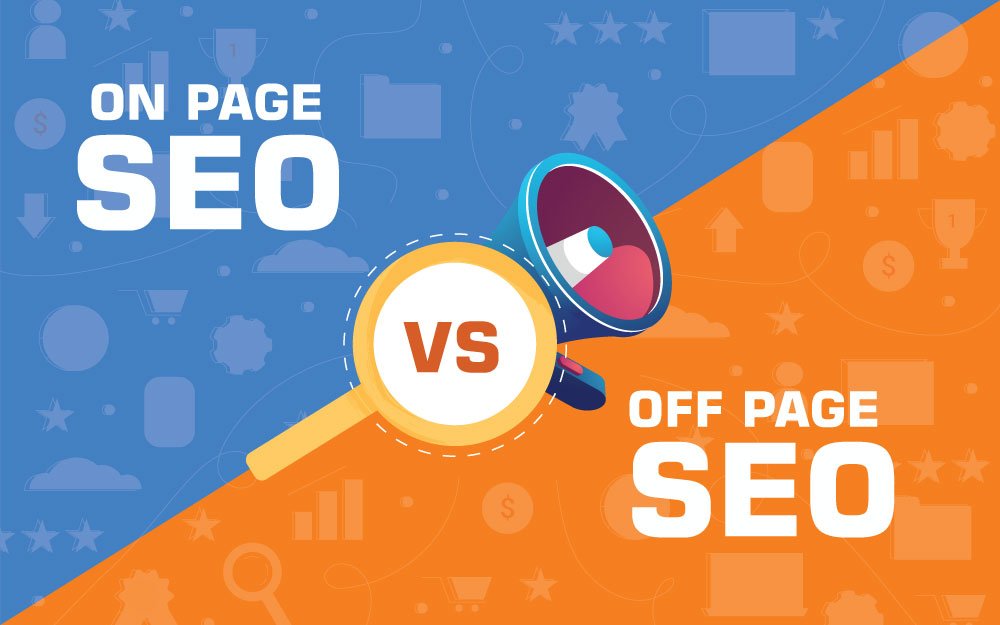What Is the Difference Between Onpage and Offpage SEO? Search Engine Optimization (SEO) is a multifaceted process aimed at improving a website’s visibility and ranking on search engine result pages. The key distinction between on-page and off-page SEO lies in their focus: on-page SEO refers to the optimization of elements within a website, such as content, structure, and HTML tags, to enhance search engine rankings. In contrast, off-page SEO involves strategies performed outside of the website, such as building backlinks, social media engagement, and online reputation management, to improve authority and visibility. Understanding these differences helps businesses determine the necessary resources and focus areas for driving organic traffic.

What Is the Difference Between Onpage and Offpage SEO?
On-page SEO Meaning

On-page SEO refers to the optimization techniques applied directly to the content and structure of a website. These elements are within your control and can be modified to improve your site’s search engine visibility and generate organic traffic. Here are the factors that differentiate On-page SEO from Off-page SEO.
Factors of On-page SEO
1. Content optimisation
the process of tailoring your website’s content to improve its search engine ranking and visibility. This involves optimising both the content itself and the elements that surround it, such as headings, meta descriptions, and URLs.
2. Keyword Relevance
Keyword relevance is one very crucial factor in deciding the effectiveness of on-page SEO. It’s about ensuring that your website content is aligned with the search terms or keywords that people are using to find information related to your business or topic.
3. Mobile Friendliness
Mobile Friendliness has become increasingly important due to the rapid growth of mobile internet usage. Most search engines now prioritise mobile-friendly websites in their search results, meaning that if your website is not perfectly optimised for mobile devices, it may rank higher in search engine rankings.
4. Image Optimisation
A website’s images improve both the user experience and visual appeal of the site. However, if they are not properly optimised, they can also have a big impact on the SEO of your website. Make sure the picture formats you select are appropriate and that the file names of the photographs are appropriate. Remember to compress photos without compromising quality in order to minimise file size and optimise page loads.
Off-page SEO Meaning

Off-page SEO refers to techniques that are used to improve a website’s search engine ranking by promoting it outside of the website itself. These techniques focus on building external links to the website, also known as backlinks. Here are the factors that differentiate Off-page SEO from On-page SEO.
Factors of Off-page SEO
1. Backlinks
Backlinks are essentially links that point to your website from other websites. They are essential as backlinks from reputable websites can boost your website’s authority and credibility in the eyes of search engines.
2. Social Media Signals
Social media signals are an essential component of off-page SEO, as they can significantly influence your website’s visibility and ranking in search engine results. These signals are interactions on social media platforms that indicate the popularity and engagement of your content through likes, shares, comments, etc.
3. Brand Mentions
Brand mentions are instances where your brand name is mentioned on third-party websites. These mentions provide a significant boost to your off-page SEO efforts. Gathering reputable mentions can serve as social proof, indicating that your brand is recognized and respected in your industry.
4. Customer Reviews and Ratings
Customer reviews and ratings can significantly impact your website’s search engine ranking. Reviews and ratings can help potential customers make informed decisions about whether to do business with you. Positive reviews demonstrating that other customers have had positive experiences with your business can increase trust and credibility.
Conclusion
It can be said that both on-page and off-page SEO play vital roles in boosting your website’s rankings in search engine results pages. While on-page SEO focuses on optimising your website’s content and structure, off-page SEO involves building external links and improving your website’s reputation. To increase your website’s visibility and organic traffic, it is essential to implement a SEO strategy that incorporates both on-page and off-page techniques.
Are you looking to build your brand and gain organic reach through the practices of SEO? Reach out to Infiniqe Marketing who’s experienced professionals offer comprehensive SEO services tailored to your specific needs and are committed to helping you achieve your SEO goals.
